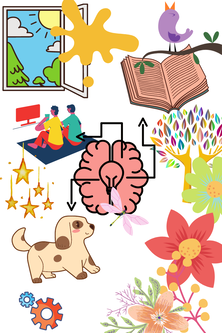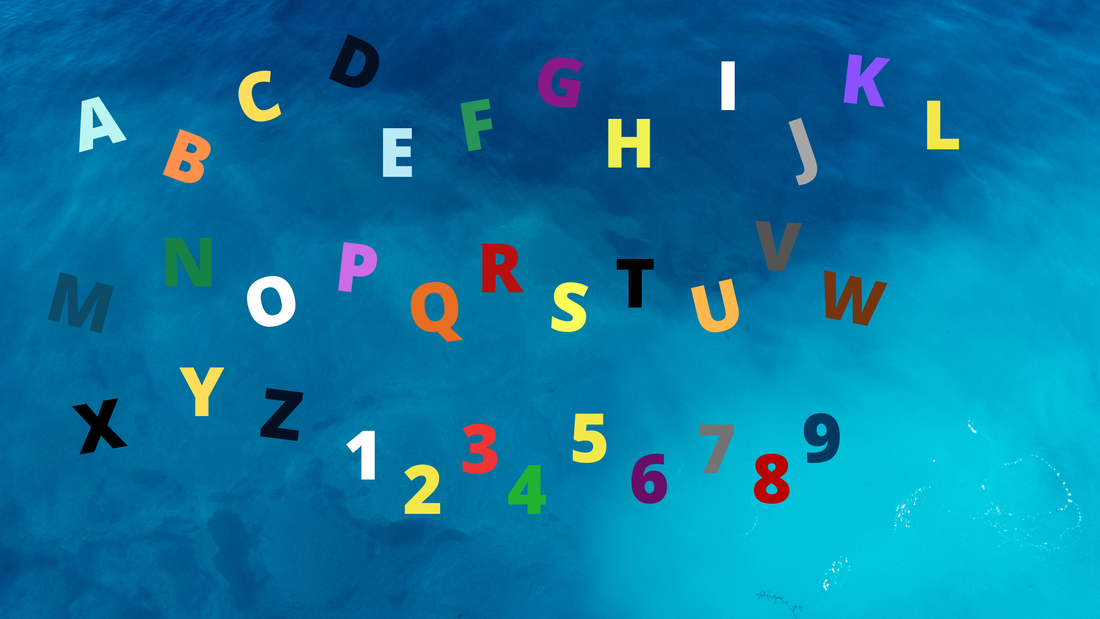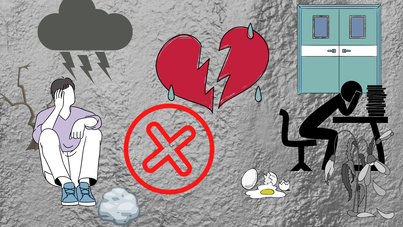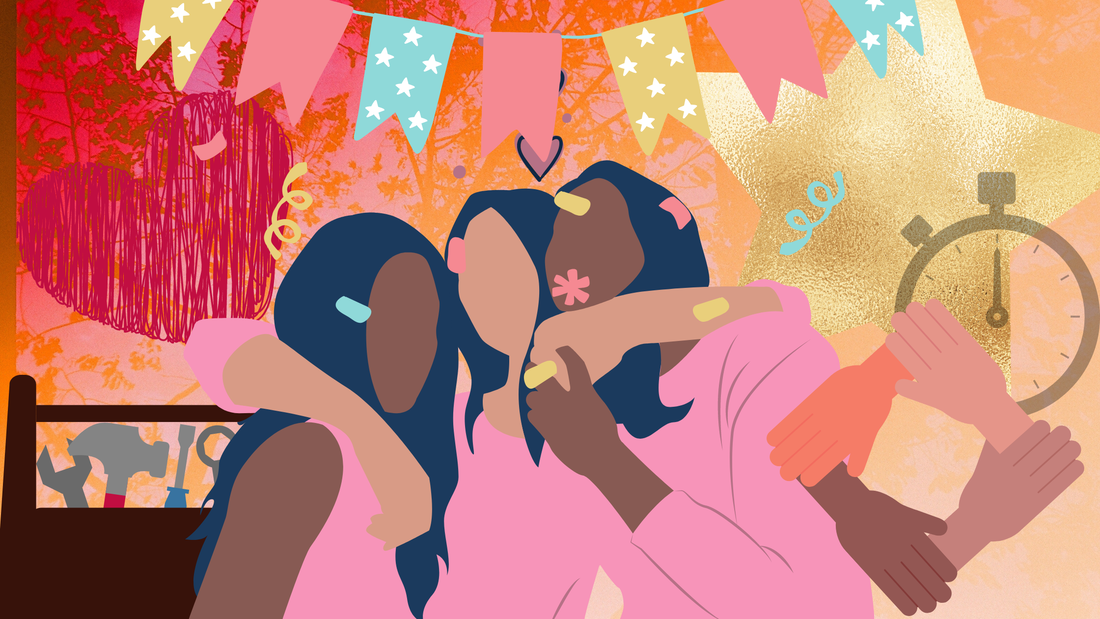 Tha brataichean beaga anns an lios agam. Tha na brataichean beaga a tha seo ann airson sealltainn gu bheil rudan ann nach fhaic thu. Agus ‘s ann mar sin a tha daoine cuideachd, tha rudan ann nach fhaic thu. Chan eil mi air facal fhaicinn anns a’ Ghàidhlig airson ‘neurodiversity’ ach ‘s e facal gu math ùr anns a’ Bheurla cuideachd. Tha am faclair Merriam Webster ag ràdh gur ann ann an 1998 a bha am facal air a chleachdadh airson a’ chiad uair. (https://www.merriamwebster.com/dictionary/neurodiversity 3 Mhàrt 2021) ‘S dòcha gun cleachd sinn niùro-iomadachd a stèidhichte air am facal bith-iomadachd (biodiversity). Ach, dè tha niùro-iomadachd a’ ciallachadh co-dhiu? Air ais gu Merriam Webster, “individual differences in brain functioning regarded as normal variations within the human population” (https://www.merriam-webster.com/dictionary/neurodiversity, 3 Mhàrt 2021). Tha na diofaran seo a’ gabhail a-steach rudan mar Mì-rianan Speactram Autism, ADHD, dyslexia, Tourette's, synesthesia, is eile ( https://www.psychologytoday.com/us/basics/neurodiversity , 3 Mhàrt 2021). Tha am facail niùro-iomadachd a’ ciallachadh cuideachd a bith smaoineachadh air na diofaran seo mar diofaran nàdarra an àite rudan a tha ceàrr le duine agus spèis a toirt do luchd-niùiro-ionmadach. ‘S e neach niùro-iomadach a th’ annam. Tha dyslexia, ADHD agus synesthesia agam. Bidh mi a’cleachdadh agam an àite orm oir ‘s e diofaran maireannach a th’ annta. ‘S e synesthesia am fear as spòrsaile dhiubh. Tha synesthesia a’ ciallachadh gum bidh na diofar pàirtean den eanchainn ceangailte ann an dòigh eadar-dhealaichte. Dhòmhsa tha sin a’ ciallach gu bheil dath agam airson gach litir agus gach àireamh ach tha diofar seòrsaichean de synesthesia ann. Airson tuilleadh fios cuir sùil air an artaigil seo bho Britannica: https://www.britannica.com/science/synesthesia Tha an fheadhainn eile rud beag nas doirbhe. ‘S e ‘doille-fhaclan’ am facal a tha ri fhaighinn anns an fhaclair airson dyslexia, ach cha chleachd mi e. Chan ann an sin ach eadar-theangachadh de seann ainm Beurla. Cha bhith daoine a’ cleachdadh an t-ainm sin anns a’ Bheurla a chionns nach eil e freagarrach, agus a chionn s gu bheil e seann fhasanta agus tuilleadh ‘s ro shìmplidh. ‘S e duilgheadas le litreachadh, sgrìobhadh agus leughadh a th’ ann an dyslexia. Chan eil dyslexia a’ ciallachadh gu bheil duine neo-gheur, no leisg. Bidh mòran cloinne aig a bheil dyslexia a’ sgrìobhadh litrichean an doigh cearr, no a measgachadh litrichean gu h-àraidh b,d,p,q (‘s e an aon cruth a th’ annta). Tha duilgheadasan ann le leughadh cuideachd, mar a’ leughadh glè slaodach agus duilgheadas ann a bhith a’ tuigsinn na leugh iad. Gu math tric bidh na duilgheadasan seo a toirt air fèin-luach na cloinne a’ tuiteam. Agus chan eil clann a-mhàin aig a bheil dyslexia, bidh na duilgheadasan aig daoine fad na beatha, ach bidh daoine a’ fàs nas fheàrr air a bhith a’ dèiligeadh riutha. ‘S e dyslexia a’ chiad rud a’ mhothaich mo phàrantan. ‘S e sgoilear gu math deònach a bh’ annam aig toiseach 1st grade (P2 ann an Alba, grade 1 ann an Canada) ach as dèidh greis bha an tidsear ag ràdhainn nach robh mi airson ionnsachadh agus gu robh ‘attitude problems’ agam. Tha litreachadh fhathast doirbh dhomh, eadhan faclan a tha gu math cumanta. Ma bhios mi a’ litreachadh facal gu tric bidh mi a’ fàs nas fheàrr ach ma stadas mi airson greis bidh e a’ falbh. Uaireannan ged a bhios mi a’ litreachadh facal tric bidh e a’ falbh. Bha seachdain ann nuair nach b’ urrainn dhomh am facal ‘circle’ a’ litreachadh idir idir ge bith dè rinn mi. Ach abair gu bheil mi math air a bhith nam co-fhaclair beò! (tha daonnan facal ann leis an aon ciall a tha nas fhasa ri litreachadh). Agus tha litreachadh Gàidhlig gu math nas fhasa dhomh na litreachadh Beurla. Airson barrachd fios air dyslexia coimhead air seo https://www.mayoclinic.org/diseases-conditions/dyslexia/symptoms-causes/syc-20353552 (An do mhothaich sibh gu bheil an artaigil seo ag rath gur e ‘disease’ a th’ ann an dyslexia. ‘S e aon de na amasan aig am facal niùro-iomadachd agus na daoine a bhios ga cleachdadh a bhith a’ tionndaidh bho smaoineachadh air na rudan seo mar tinneas gu smaoineachadh orra mar dòigh eile a bhith).
Ach dè th’ ann? Tha Psycology Today ag ràdh: “Attention-deficit/hyperactivity disorder (previously known as attention deficit disorder or ADD) is a neurobehavioral disorder characterized by core symptoms of inattentiveness, distractibility, hyperactivity, and impulsivity.” (https://www.psychologytoday.com/us/basics/adhd 6 Màrt 2021). Cuideachd, tha duilgheadasan le foincsean-ghìomha (executive fuction) aig mòran aig a bheil ADHD. Tha sin mar duilgheadasan le planadh, riaghlachadh-faireachail (emotional regulation), co-dhùnaidhean a dhèanamh agus cuimhne-obrach ( working memory). Dìreach mar dyslexia chan e clann a-mhàin aig a bheil ADHD. Mar mi fhìn tha barrachd air aon duileadas aig mòran luchd-niùro-iomadach. Tha iomagaineachd agus fèin-luach ìosal gu math cumanta am measg luchd-niùro-iomadach cuideachd. Ach leis na goireasan agus sgilean ceart bidh luchd niùro-iomadach gu math soirbheachail. Tha dà rud agam ri ràdh anns an dealachadh. A H-AON: Tha e comasach do luchd niùro-iomadach Gàidhlig ionnsachadh agus tha fàilte chridheil orra aig Gàidhlig Gàch Latha. A DHÀ: Aon den na goireasan a tha a dhìth anns a’ Ghàidhlig ‘s e briathachas niùro-iomadachd. Ciamar a ‘s urrainn do duine a chuideachadh luchd niùro-iomadach gun na faclan ceart a bhith aca agus an aon rud le luchd niùro-iomadach fhèin. ‘S e fèin-eòlas rud gu math feumail dhaibhsan agus tha an còmhradh mu niùro-iomdachd glè cudromach. Tha mi an dòchas gum bi còmhradh ann agus gum faigh clann agus inbhich niùro-iomadachd an taic agus an tuigse a tha a dhìth orra. Anns a' Bheurla:There are little flags flying in my yard. These little flags are there to show that there are things unseen. And it is like that with people - we are all composed of invisible pieces. I have not seen a Gaelic word for ‘neurodiversity’’, but it is a new word in English as well. Merriam Webster says it was first used in 1998. Perhaps we should employ “niùro-iomadachd” which is based on the Gaelic word “bidh-iomadachd” (life-diversity, plentiness) for biodiversity. https://www.merriam-webster.com/dictionary/neurodiversity
But what does neurodiversity mean anyway? Back to Merriam Webster, where it says “individual differences in brain functioning regarded as normal variations within the human population”. These differences include examples such as Autism Spectrum Disorder, ADHD, dyslexia, Tourette’s, synesthesia and others. The term neurodiversity also has the added meaning that these are natural differences as opposed to defects or that there is somehow something ‘wrong’ with you, and thus more respectful to neurodiverse people. I am neurodiverse. I have dyslexia, ADHD and synesthesia. I say I have rather than I suffer from ADHD etc because these are permanent differences. Synesthesia is the most enjoyable of these differences. It means that some parts of the brain are linked in different ways. For me, this manifests as particular colours being associated with each letter and number, but there are many different types of synesthesia. For more info, see this article from Britannia. The other ones are more difficult for me. Doille-fhaclan or ‘word-blindness’ is the word found in Gaelic dictionaries for dyslexia., but I do not use it. It is at any rate only a literal translation of an antiquated English term for dyslexia. People no longer use that word in English since it isn’t accurate, outdated and oversimplified. Dyslexia is the difficulty with spelling, writing and reading. It does not mean that someone is dull or lazy. Many children with dyslexia write letters backwards, or often get letters mixed up particularly with b,d,p,q as they share the same shape. There are challenges with reading as well, such as reading very slowly or having difficulty comprehending what was read. Often these struggles can cause a child’s self-esteem to drop. And it isn’t only children with dyslexia, these challenges remain with people throughout their lives though they get better at dealing with them. Dyslexia was the first thing my parents noticed. I was a keen student at the start of grade 1, but after a while the teacher said I didn’t want to learn and that I had attitude problems. Spelling is still difficult for me, even words that are fairly common. If I spell a word frequently it is better but if I stop for a while it often leaves me. Sometimes even though I spell a word often it eludes me. There was a week wherein I could not spell ‘circle’ no matter what I did. But I am a walking thesaurus - every word has a synonym that is easier to spell! And Gaelic spelling is easier for me than English. For more information on dyslexia see: https://www.mayoclinic.org/diseases-conditions/dyslexia/symptoms-causes/syc-20353552 (Did you notice that the article refers to dyslexia as a disease? One of the aims of promoting the use of the word ‘neurodiversity’ is to help make the change from the unhealthy view that neurodiversity is a sickness to a healthier approach where these differences are simply viewed as different ways of being. ) Now, ADHD. Why not start with the name. The initialism ADHD stands for the English Attention Deficit Hyperactive Disorder. ADD used to be the terminology but these days it is just ADHD. In any case, neither of them are particularly appropriate and there are no words for it in Gaelic. But what is it? Psychology Today says: “Attention-deficit/hyperactivity disorder (previously known as attention deficit disorder or ADD) is a neurobehavioral disorder characterized by core symptoms of inattentiveness, distractibility, hyperactivity, and impulsivity.” Also, many people with ADHD struggle with executive function. This manifests as difficulty in planning, decision-making and working memory. Just as with dyslexia it is not only children who have ADHD. As with my own example, most neurodiverse people face more than one challenge. Anxiety and low self-esteem are common among the neurodiverse as well. But with skills and resources neurodiverse people are quite successful. I have two things to say in closing. One: neurodivergent people can learn Gaelic and there is a warm welcome for them at Gaidhlig Gach Latha/Daily Gaelic. And two: one of the resources lacking is Gaelic terminology for neuroversity. How can we help neurodiverse people without the right words? How can they help themselves if they don’t have the nomenclature? Self knowledge is an important topic to them, as is the conversation on neurodiversity itself. I hope that the conversation takes place and that neurodiverse people can get support and understanding.
0 Comments
Bridging the gap between being a learner of a language and a speaker of a language can be difficult. To go from translating to speaking naturally is a major goal for most learners and one that most teachers have for their students.
Here are some of my thoughts and ideas on how to tackle this challenge. Please share your idea especially things that have worked for you in the comments. 1. Don't worry: The more important it is to you to become fluent the easier it is to worry about how well you are doing and how quickly you are learning. But the worrying can make it harder to learn. So if you find yourself worrying take a time out and do whatever you do to calm down: meditate, yoga, a walk in the woods, go to the gym, watch a silly youtube video and relax and trust yourself. 2. Believe in yourself! : Here is the thing about this, if you tell yourself that you can you will find a way to get to the level of Gaelic that you want, the opposite is also true. We all have times when we feel discouraged and frustrated but don't let those feelings become a habit. If you find that you are often thinking "I can't do this" or "this is too hard" you can start to turn your thinking around. Start by adding 'yet' or 'right now' to these negative thoughts so they become "I cant do this yet" and "This is too hard right now". 2.5 Be kind and be curious: The next step is to be kind to your self. What ever level of Gaelic you have now is ok. Take a look at all the things you have learned. Remember when you didn't know any Gaelic and see how far you have come. It can be fun to get out the fist Gaelic materials that you ever got or go back to where you first saw or got interested in Gaelic. Remember what it was like the first time you heard Gaelic. Tune into the excitement you felt and also see how far you have already come. Now it is time to get curious. Yourself is the most fascinating thing in the universe. You wouldn't believe how much there is to discover when you start being curious about yourself. Be curious about how you learn. Does it work best to hear new words, to see them written, to write them yourself, to see a picture of them? Do you learn best by finding out about the hows and whys and really getting into the grammar or is it easier for you to learn whole phrases? But don't stop there. Be curious about how you think. Be curious about what associations you have and are making for words and phrases. Be curious about how you are feeling about different things you are learning. If you are getting frustrated, be curious about why? Check out your own beliefs. I don't mean religious beliefs but the little everyday ones that most of the time fly under our radar. Ones like "I'll never be a native speaker so why should I try" and "I'll never be good enough" some may be about Gaelic in particular but some probably are happening in many areas of you life. Once you see them it is way easier to not believe them. When I find these guys lurking around I like to say "I see you now and I don't have to believe you" it doesn't mean that they don't come back but when they do I can say "I know you and I am choosing not to listen to your spiel today". The less you listen to them the weaker they become. 3. Take small steps and celebrate small successes: This is the thing where instead of writing "clean kitchen" on your to do list you write "put dishes away, wipe down counters, clear off table, sweep floor". You want to get to the feeling like you have gotten stuff done as soon as possible. So on your Gaelic to do list don't have "Become fluent Gaelic speaker" you won't get to the fun part for a while if you do that and most likely you'll get discouraged. Go for something you can feel good about today like "today I will learn 3 new Gaelic words". Make sure your goals are achievable in whatever time frame you set. I'd recommend keeping it to a week or less. Remember to be kind and curious so if you don't make a goal be kind, it is ok and then get curious. Why didn't you make the goal? Was the goal too big, the time too short? Did something happen to keep you from your goal? Sometimes things happen so be kind and also be looking out for those sneaky beliefs, sometimes they derail our plans. Again be kind, this (as far as I can tell) is just part of being human but be curious and see what the belief is and then be creative about how you can detour yourself around this belief next time. Really celebrate the successes not matter how small. What ever it is that you do, have a cookie or tell a friend or do a happy dance, do it. Success is great, be proud of yourself and feel good. 4. You don't have to be fluent at everything all at once: Trying to tackle the whole language at once is huge. Pick one thing that you are going to work on, say it is telling time in Gaelic, practice it a lot. Every time you look at a clock say the time in Gaelic. Practice asking what time it is and listening to the time being told. Get really good at telling time. Get to the point where telling time in Gaelic is natural for you. Great now you can fluently tell the time in Gaelic. Work on one thing at a time and build up fluency in different areas one at a time. 4.5 Use the Gaelic you know: You know a lot of Gaelic words, even if you have only just begun to learn. But you might not be able to put them into Gaelic sentences just yet. Don't worry, start by using them in English sentences. Use them whenever and where ever you can. If you are learning food words make your shopping list in Gaelic and as you pick up the things in the store say the word. When you see something you know the word for in Gaelic say it. Go to the park, if you say hi to a dog say "hello cù" or if you have learned about the vocative "Hallo a' chù" touch a tree and say "craobh" if you know a bit more Gaelic add some descriptions like "craobh mhòr". Practice on you pets, they don't mind. Tell them "Madainn mhath" in the mornings ask them how they are. Be creative and use the Gaelic you know every chance you get. 5. Have fun!!!!!: This is super important. Play games, do silly things however you like to have fun use Gaelic. If you are learning Gaelic with someone else do lots of fun things together in Gaelic. Say nice things to each other in Gaelic. Go to the zoo and practice your animal names, play charades in Gaelic, go for a Gaelic only hike, go out for coffee in Gaelic. 6. Connect with others who are learning: In person is great but these days there is Facebook and Skype and e-mail so if there isn't anyone in your area you can connect with others. Gaelic is a language and so it is good to use it to communicate with others. Check out local groups, or national groups for events and people you could connect with. 7. Don't be afraid to make mistakes: There are really two parts to this. Firstly mistakes are going to happen and it is ok. It is great to get out there and try things out in Gaelic and if you don't get it right it is fine and it can be a great way to learn. The second part is be upfront and honest with people about how much correction you want in any situation. If you are getting together with someone for a Gaelic chat and you just want to talk without being corrected let them know. Also if you do want to be corrected let people know that too. Again please share any ideas and/ or successful techniques in the comments Chan eil a' Ghàidhlig agad foirfe fhathast? Na gabh dragh! Ma tha an duine eile gad thuigsinn, glè mhath, mur eil, feuch a-rithist. Mar as tric nuair a bhios tu a' dèanamh mearachdan 's ann an uair sin a bhios tu ag ionnsachadh mòran co-dhiubh.
Chan eil a' Bheurla agam foirfe fhathast agus 's i a chiad canan agam! 'S ann mar sin a mòran duine. Cha chuala mi duine riamh nach do rinn mearachd sa chanan idir. Na leig cnapan-starra anns an rathad agad gad cumail air ais. Tha doille-fhaclan agam.( Chan eil am facal Gàidhlig sin buileach freagaireach). Dhomhsa tha e a' ciallachadh gu bheil e gu math doirbh dhomh an litreachadh ceart a cumail nam cuimhne 'sa Bheurla agus 'sa Ghàidhlig. Bidh mi daonan a' cleachdadh faclair. Tha mi cho taingeil airson faclaran air-loidhne. Feumaidh mi aideachadh gu bheil eagal orm nuair a bhios mi a' sgrìobhadh gu poblach ach chan eil mi a' leigeil an eagal sin gam chumail bhon na tha mi ag iarraidh a dèanamh. Tha an comas sin agadsa cuideachd, cum ort agus na gabh dragh. Your Gaelic isn't perfect yet? Don't worry. If the other person understands you, very good, if not try again. Often it is when you make mistakes that you learn a lot anyway. My English isn't perfect and it is my first language. Lots of people are like that. I've never heard someone who didn't make language mistakes at all. Don't let obstacles in your path keep you back. I have dyslexia ( first who thought that was a good word for people who have spelling problems? Secondly the Gaelic word means 'word blindness' and isn't the most exact word for this very complicated thing). For me this means that it is very hard for me to remember the correct spellings of words. I always use a dictionary all the time. I am so thankful for on-line dictionaries. I have to admit that I am scared when I write publicly but I don't let that keep me from doing the things that I want to do. You have that ability too, keep going and don't worry. |
Details
AuthorsCaroline has been involved with Gaelic for more than 18 years. She has degrees in Celtic Studies and Gaelic Medium Teaching. Archives
March 2021
Categories
All
|
Proudly powered by Weebly





 RSS Feed
RSS Feed